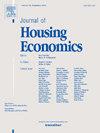Selling price, time on the market, and contractual contingencies
IF 2.4
3区 经济学
Q3 ECONOMICS
引用次数: 0
Abstract
Real estate contracts often have a wide variety of contractual contingencies. This study examines whether a property inspection clause, the sale of other property contingency clause, and a backup offer contract affect a property's time on the market and selling price. A theoretical model is created based on the relative bargaining power between the buyer and seller. Using a large sample of transactions from Miami-Dade County in South Florida, we find that contingency clauses are significantly affected by market conditions, time on the market, list price premiums, brokerage characteristics, home size, and age. The time on the market (TOM) for purchase contracts with a property (pending) inspection clause or a backup offer contract is shorter. In contrast, the TOM for a sale of other property clause is longer. When holding constant TOM, buyers pay less for properties with a property inspection clause. In comparison, sellers receive a premium for properties with a sale of other property contingency clause. A backup offer contract has no effect on the selling price.
销售价格、上市时间和合同附带条件
房地产合同通常有各种各样的合同或有事项。本研究探讨物业检视条款、其他物业出售的应急条款和备用报价合约是否会影响物业的上市时间和售价。建立了基于买卖双方相对议价能力的理论模型。利用南佛罗里达州迈阿密-戴德县的大量交易样本,我们发现应急条款受到市场条件、上市时间、标价溢价、经纪公司特征、房屋面积和年龄的显著影响。带有物业(待定)检验条款或备用报价合同的购买合同的上市时间(TOM)较短。相比之下,出售其他财产的TOM条款则更长。当TOM保持不变时,买家为带有物业检查条款的物业支付较少的费用。相比之下,卖方在出售其他财产时可以获得溢价。备用要约合同对卖价没有影响。
本文章由计算机程序翻译,如有差异,请以英文原文为准。
求助全文
约1分钟内获得全文
求助全文
来源期刊

Journal of Housing Economics
Multiple-
CiteScore
3.30
自引率
4.20%
发文量
35
期刊介绍:
The Journal of Housing Economics provides a focal point for the publication of economic research related to housing and encourages papers that bring to bear careful analytical technique on important housing-related questions. The journal covers the broad spectrum of topics and approaches that constitute housing economics, including analysis of important public policy issues.
 求助内容:
求助内容: 应助结果提醒方式:
应助结果提醒方式:


